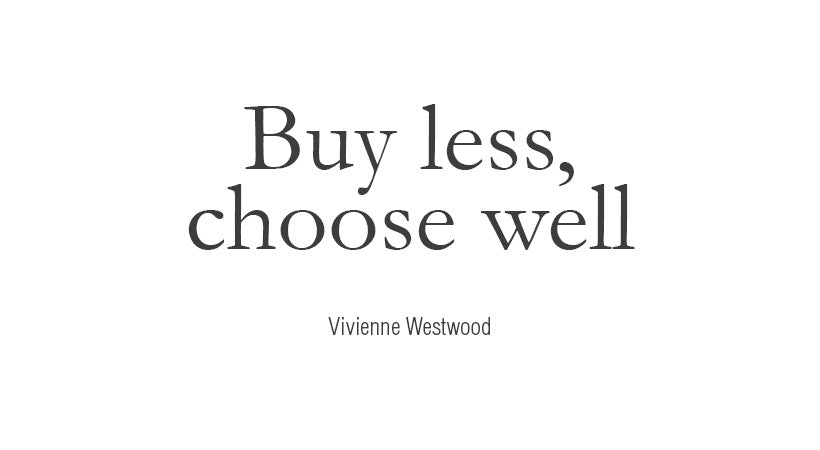Consumerism and Climate Change
Three years ago, in November 2015, all the nations of the world were in Paris for COP21 (Conference of the Parties). COP21 marked the first major breakthrough in terms of commitments made by major countries such as the United States and China to contain the advances of climate change.
Here we are with Donald Trump, a climate change denier, threatening to suspend the agreements signed by one of the biggest polluters during the conference in Paris. While simultaneously witnessing climate change day after day, degrees above degree, disaster after disaster, happening all over the world.
The truth is that COP21 is a step - albeit a very timid step - closer to what we need to stop climate change. The deal discusses clean and renewable energy, lessening the burning of fossil fuels and increasing the supply of solar and wind energy, but it does not address a crucial issue when it comes to climate change: consumerism.
Over half of the effects of the planet, including climate change, come from domestic consumption - that is, what you and the other 1.7 billion people who are part of the "consumer class" choose to consume every day. And at what speed and quantity.
Livestock is responsible for about 12% of greenhouse gas emissions in the atmosphere, while the fashion industry accounts for around 10% of CO2 emissions . When we talk about climate change, we need to talk about our daily consumption - what we eat and what we wear is very relevant to climate change. The answer is we need to buy less.
For more than a year, Insecta Shoes and Modefica came together during one of the biggest days of global consumerism - Black Friday - to discuss the damage that over-consumption is causing in the world and for the lives of people who suffer most the effects of climate change.
On this Green Friday we shed light on studied data to reflect on your daily consumption and encourage you to engage in actions that address climate change beyond ethical buying and conscious consumption. It is time to reach out and strengthen the global movement of environmentalists fighting for this cause.
Of the 7 billion people in the world today, only 1.7 billion have access to consumer goods. This means that less than ¼ of the world's population is destroying the world's natural resources and leading to climate change.
As a society, we are transferring our desires and voids into consumption. The negative impacts of over consumption can already be measured in several countries.
As much as the government tells us that the solution is to shorten our showers, switch to LED lightbulbs and brush our teeth with the faucet off, the fact is that environmental impacts and climate change are much more related with the products we consume.
Climate change is a real problem and we are all living it now. However, climate change affect marginalized groups the most. Among them are women who are at the forefront of environmental problems.
If we continue to consume products at the same rate and burn fossil fuels as we burn today, the Arctic will melt mid-century. The melting of the Arctic will bring floods and droughts throughout entire cities.
This data is not meant to scare us away. Rather it gives the necessary push we need to start changing. Believing and engaging in conscious consumption is the first step, then it is necessary to become an activist, researching the problem and solutions, debating the issue and supporting organizations that are acting to reverse the effects of climate change.











